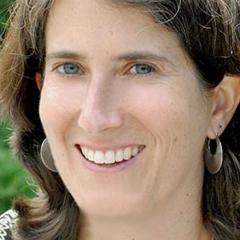Morello-Frosch explains how toxicology and exposure assessment can improve environmental health research
Morello-Frosch explains that the traditional model of breast cancer research asks a very limited set of questions about the causes of breast cancer. “We are realizing that genetics, lifestyle, when you have kids, your weight, if you drink, all of that kind of stuff - much of which we as women have very little control over – maybe at best explains about 20% of breast cancer cases,” she says, even though these areas have been the focus of research for decades.
To explore the remaining 80% of breast cancer diagnoses, activists point to the tens of thousands of chemical pollutants in our environment that we know little about. Yet, research methods in the study of environmental health have not provided information about environmental chemical causes of breast cancer at the speed and to the depth that are needed to combat this epidemic.
The environmental breast cancer movement has long urged more researchers to think outside the box of traditional breast cancer research. “Breast Cancer Action has been a big part of this [shift], . . . as well as other organizations that have cared about environmental links,” Morello-Frosch told me.
